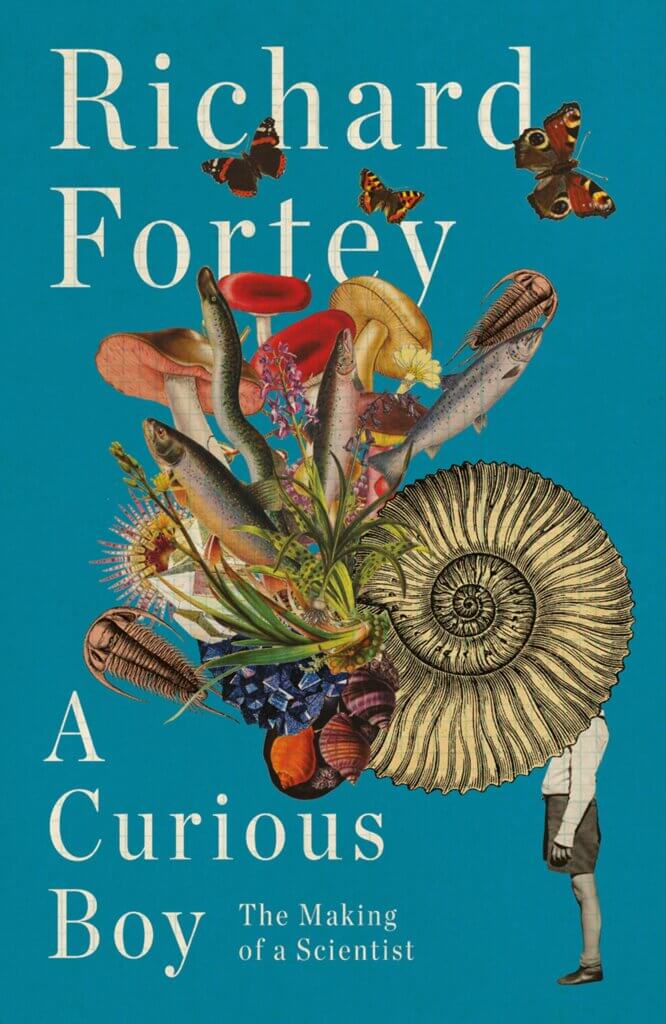
I’m not very familiar with Richard Fortey, not having read any of his previous books nor, as best as I can recall, seen him on TV. So I came to read his book of memoirs uncluttered by preconceptions.
This book is about Fortey’s childhood through to young adulthood and about the role of natural history in his development as a palaeontologist. It touches on fishing, egg-collecting, fossils and very much more. Fortey is a dozen years older than I am and so it took me back beyond my youth although there is overlap. We hear about Fortey’s schooling and family life but only as background to the wildlife and natural history aspects of his life. I liked it and its gentle pace – a pace recalling those of stretches of the chalk rivers he writes about in places.
Maybe, I would have liked a little more pace. Slightly shorter chapters, for me, could have made space for another chapter or two – I’d have liked that.
I like the cover.
This is a good read and may well cause me to go back and read some of Fortey’s other books – he seems like an interesting and knowledgable guy.
A Curious Boy: the making of a scientist by Richard Fortey is published by William Collins.
[registration_form]
Richard Fortey and his-wife live just down the road from me so I know him reasonably well. Until he retired some years ago he was a top scientist at the Natural History Museum in London and specialised in the evolution of trilobites. He is a really interesting guy to talk to. He has written a number of books including one about a wood he owns locally. He is also a specialist in fungi. A few years ago he did some excellent programmes for the BBC including one called “Survivors” which looked at certain animals that have survived virtually unchanged through the greater part geological time.
A great guy to know and very knowledgeable on natural history.
He’s written quite a few books and did some BBC programs that have definitely been ‘a bit different’ in very good ways. ‘Trilobite: Eyewitness to Evolution’ is excellent on both how amazing trilobites are and his adventures in looking for their fossils and subsequent lab work. I have a very bad habit of reading a book then passing it on, then wishing I still had it and ‘Trilobite’ is one of the prize examples of that.
His perspective as a geologist and palaeontologist gives a really interesting slant on natural history. He’s done several series on BBC4 that were too easy to miss unfortunately, they’re really worth looking out for. One was on ancient lifeforms that have managed to survive until the present day velvet worms, horseshoe crabs etc.
There was another on how islands are special places for evolution and preserving relict species, and more recently a series about exceptional fossil sites that have managed to capture what was a living community not just certain species. There have also been standalone programs on fungi and an utter classic about the life in British rockpools, one of those that everybody should be forced to sit and watch to make them realise what they’re missing if they’re not interested in nature.
The cover is very effective isn’t it? Suggesting the exploding of wonder in a child’s mind.
https://www.bbc.co.uk/news/science-environment-55939344
I just looked on my shelves to find Fortey’s
Life : An Unauthorised Biography :A Natural History of the first four thousand million years of life”
I liked it in 1998 ,I’ll read it again
He did a TV programme “The Magic of Mushrooms ” on BBC 4 but it’s no longer available on their website.
I read his book “The Hidden Landscape: A Journey into the Geological Past” in the Noughties. It survived the Ziffit purge at Chrimbo.
Dry store room no. 1: the secret life of the Natural History Museum is a most excellent read too, one of my favourite books
We were lucky enough to have Richard Fortey give a talk to our local RSPB group in 2019 about his patch of woodland in the Chilterns. As you might guess from the cover of his book, his species list was incredibly comprehensive. The only taxa he didn’t cover in his talk were amphibians because there weren’t any there.
As I recall, snails are rather poorly represented in his wood due to a shortage of lime available for shell making.
The Woods for the Trees is very good.
Mark, the danger of reading your reviews is that I add to my pile of books yet to read. Richard Fortey is definitely worth adding to yours, I’ve thoroughly enjoyed them all.
Good luck with the writing, how time passes, the young boy who I took to a talk you gave at Leighton Moss on your first book is now almost 16 and occasionally leaves his virtual reality war games to watch wildlife.